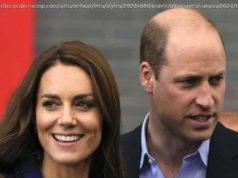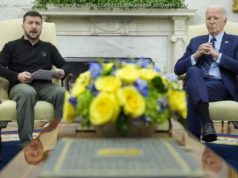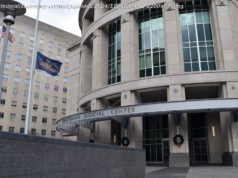Executives from Facebook, Google and Twitter will appear before a Senate committee as the capital remains abuzz about the charges in the Mueller investigation.
Good Tuesday morning from Andrew Ross Sorkin in New York and Michael J. de la Merced and Amie Tsang in London. We’re watching SoftBank to see if the Japanese conglomerate really wants Sprint to walk away from a T-Mobile deal, or if it’s all merely negotiating tactics. More on that in a minute.
Tell us what you think: We’ve put together a survey about the economy, business and public policy with our friends at Morning Consult. Take it here.
A reminder: DealBook’s sixth annual conference, Playing for the Long Term, takes place on Nov. 9. Want to join us? Apply to participate here.
Russia is Topic A in the Senate today, especially with lawyers for Facebook, Google and Twitter set to testify before the Judiciary Committee. We expect Senator Chuck Grassley, the committee chairman, and other members to ask hard questions about:
• When the tech giants knew the full extent of Russia’s interference with the 2016 election
• What they intend to do to stop that from happening again — a tricky job for companies seeking to both preserve free speech and ward off further regulation.
A reminder of what Facebook and Google will address in today’s hearing, from Mike Isaac and Dai Wakabayashi, NYT:
David McCabe of Axios notes that a Democratic member of the Judiciary Committee, Senator Amy Klobuchar of Minnesota, is expected to “push especially hard on why the companies think it would be hard to comply with the law when smaller broadcast outlets are able to meet transparency requirements.”
And here’s a look at what’s behind the tough questioning of the Silicon Valley titans, from John D. McKinnon and Brody Mullins, WSJ:
Let’s face it: Despite the impending tax plan rollout and the picking of a nominee for Federal Reserve chairman, Washington will still be largely talking about the criminal charges that Paul Manafort and Rick Gates face in Robert Mueller’s investigation.
Some of those conversations will concern Tom Barrack, one of President Trump’s closest advisers, who has emerged as connected to the two men. Could that see him pushed out of the White House inner circle?
Mr. Barrack had helped persuade Mr. Trump to hire Mr. Manafort (an acquaintance of both men) as campaign manager last summer, according to Ken Vogel of The NYT. And Mr. Barrack had grown close to Mr. Gates. From Robert Costa, Philip Rucker and Ashley Parker, WaPo:
Mr. Barrack’s Colony NorthStar fired Mr. Gates as an adviser after Monday’s indictments, according to Erik Schatzker of Bloomberg. And Mr. Barrack — who has been outspoken of late about the Trump administration and his relationship with the president— was notably tight-lipped when Mr. Schatzker asked about his thoughts on Monday’s developments:
Another finance angle: Both Cyrus Vance Jr., the Manhattan D. A., and Eric Schneiderman, the New York State attorney general, are investigating Mr. Manafort’s ties to the Federal Savings Bank of Chicago, which lent him about $16 million, according to Ben Protess and Jessica Silver-Greenberg of The NYT. (The bank itself isn’t under investigation.)
The unexpected tech angle: As it turns out, Mr. Manafort may have violated Airbnb’s policies when he rented out his condo in downtown Manhattan, according to Cale Guthrie Weissman of Fast Company.
We’re a day away from the House formally unveiling its version of the Republican tax overhaul — and there’s still disagreement about what should be in the package.
The latest question is whether the corporate tax rate should go down to 20 percent from 35 percent immediately or in stages.
House negotiators are considering a phased reduction, according to Jennifer Jacobs and Anna Edgerton of Bloomberg. On the other side: White House officials like Press Secretary Sarah Huckabee Sanders, who said, “The president laid out his principles and it doesn’t include the phasing in, so we’re still committed to that moving forward.”
Other challenges
• Senator Susan Collins, Republican of Maine, said that she opposed a decrease in the tax rate for those making more than $1 million a year and elimination the estate tax. ( Bloomberg)
• The Senate’s version of the tax plan is likely to maintain some lesser version of the estate tax but it may also at least partly repeal deductions for state and local taxes, according to unidentified people. That could endanger support from senators in high-tax districts. ( Axios)
• Remember that Republicans can’t lose more than two senators to pass the tax legislation without Democratic votes.
We guess we see the point: Washington reporters and observers were a little puzzled by Ms. Sanders’s fable about 10 reporters who drank beer. We’ll let Jim Tankersley of T he NYT recap her story — and note its central message:
Few will be surprised — unless Mr. Trump changes his mind at the last minute. Barring that, the announcement could come as soon as Thursday, after the Fed wraps up its policy meeting, according to Maggie Haberman and Binyamin Appelbaum of The NYT.
James Mackintosh of The WSJ notes how hard it is to make money from betting on a new chairman’s policy leanings. All we can surmise thus far: Mr. Powell is slightly more inclined toward deregulation, and he will continue Janet Yellen’s dovish approach to raising interest rates.
Worth reading
Paul McCulley, the former chief economist at Pimco, says he’s still a fan of Ms. Yellen as Fed chairwoman. “Yellen would be an inspired choice: She resolutely believes in the Fed’s dual mandate to pursue maximum employment in the context of low and stable inflation,” he writes in The NYT .
If the Nikkei Asian Review is right, the on-again, off-again talks between Sprint and T-Mobile could be off again today. The Japanese business publication reported that SoftBank, which controls Sprint, wants more control of the combined group than it’s currently expected to get. Investors reacted how you might expect them to.
The question is whether SoftBank really intends to walk away. We’ve heard that the Japanese conglomerate’s board is unhappy with the prospect of losing control in a merger: At a board meeting last Friday, several directors questioned whether it was wise to take only about 40 percent of the combined wireless business — a smaller amount than Deutsche Telekom — because T-Mobile is currently bigger than Sprint.
We’ve seen hardball negotiating tactics from SoftBank and Masayoshi Son before: The Japanese conglomerate expressed interest in buying the cable company Charter Communications earlier this year before resuming talks with T-Mobile.
Critics’ corner
• Brooke Sutherland of Gadfly writes, “We — like investors — are scratching our heads as far as SoftBank’s strategy here.”
• Jacky Wong of Heard on the Street writes, “Without a merger, Sprint would need to raise spending on its own network, which would weigh on its indebted balance sheet. And price competition would likely continue.”
• Lex writes that the potential merger “was eminently sensible, good for shareholders and utterly boring by the standards of a leader who talks in rapt terms about the ‘singularity.’ ”
The Goldman Sachs chief is still making veiled allusions to Brexit, and what he might do about it. (Remember his tweet from Frankfurt ?)
• Credit Suisse named Steven Geller as its head of mergers and acquisitions for the Americas, according to an internal memo. He was most recently head of technology M. & A., a position he’ll keep alongside his new role.
M.&A.
• Mattel shares surged after bleak quarterly results renewed speculation that the company may be a takeover target.
Home
United States
USA — Criminal Tech Giants Testify as Washington Focuses on Russia: DealBook Briefing






